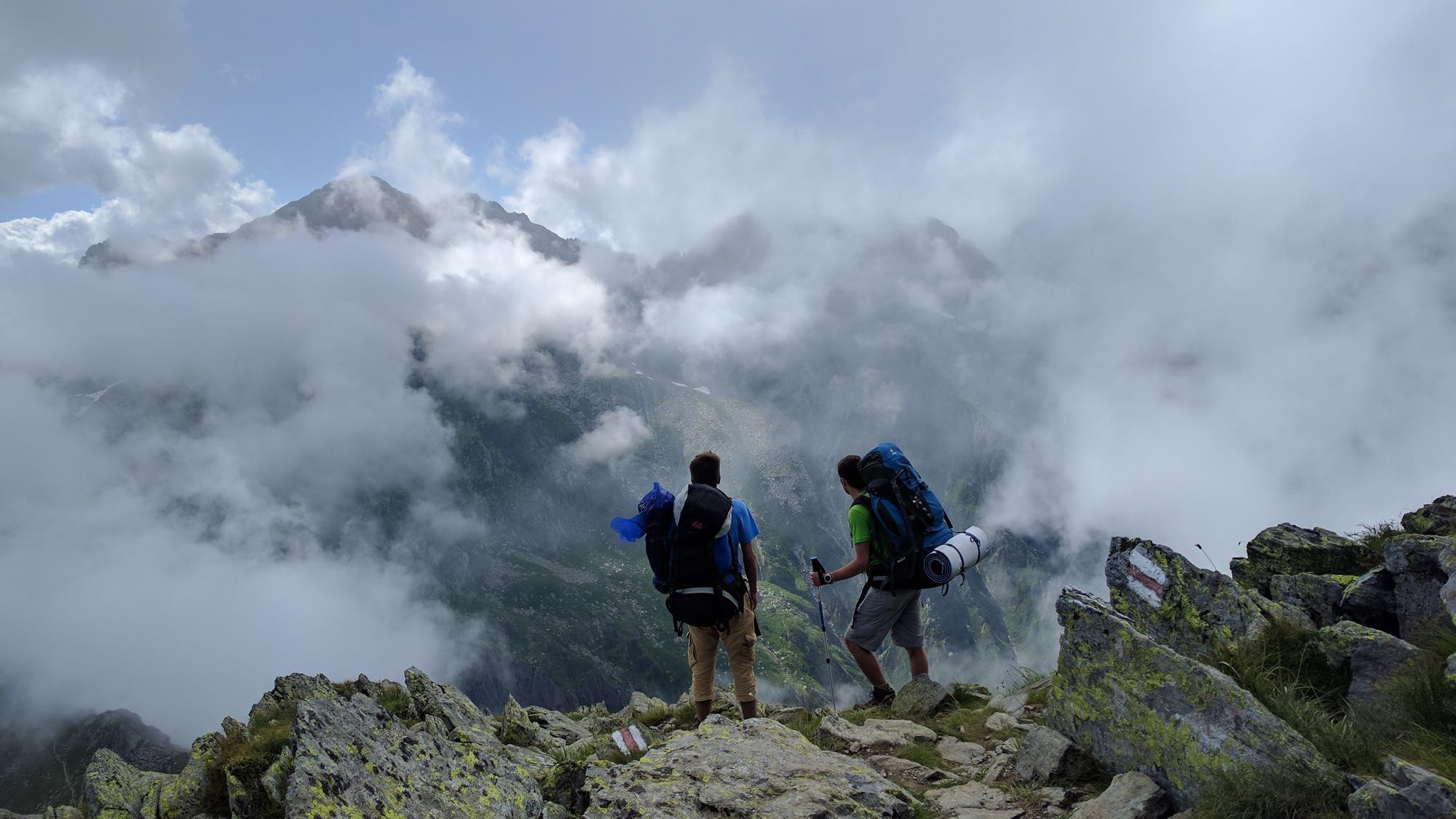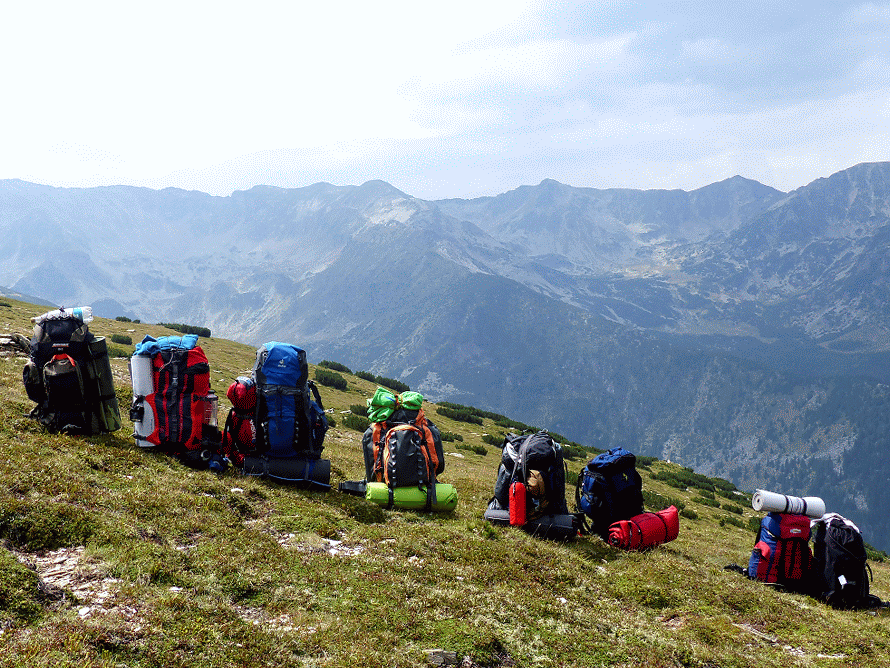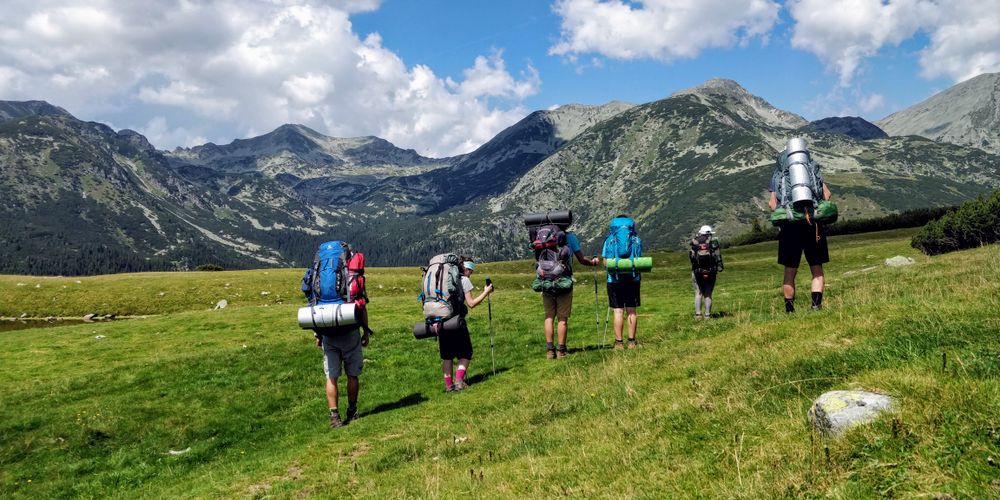What to bring on a backpacking trip
When you go in the mountains, what you pack is all you have for a few days.
You would want to bring with you a great deal of things, so that you don’t find yourself in need, but... you have to carry everything on your back.
In a backpack.
This raises two great concerns. Firstly, everything has to fit into your backpack. Secondly you want to be able to carry it while also enjoying the hike.
Anyone who has ever carried a heavy backpack knows what I mean.

Theoretically, you can carry about a third of your weight without any problems. But who enjoys carrying a too heavy backpack? Would you not rather have it be as light as possible, so that you can almost forget about having it on the back? (The backpack type is also important, together with the right adjustments, but we will talk about this in a future post)
Do you know how frustrating it is when, after you have climbed the ridge heavily breathing, you find in your backpack things that you do not need? Or things that could have been replaced by lighter ones, which serve the same purpose? Or how annoying it is to empty your backpack searching for an important item, while realizing that you’ve left it home?
I do.
I have been at least once in both situations. Enough to make me not want to repeat any of them. To do so, I've created a list with the all necessary things for a backpacking trip. I check it when I pack and I check it once more when I'm done.
Here is the list.
Clothes and shoes
- Hiking boots
- Lighter shoes, for the evening
- Socks
- Shorts
- Underwear
- T-shirts (merino, if possible)
- Polar jacket, sweatshirt
- Sleeping clothes: pants, hoodie, socks
- Jacket/Windstopper
- Beanie
- Buff/scarf
- Hat/cap
- Raincoat
Equipment
- Hiking backpack (+ rain cover)
- Tent (if you don't plan to stay in a cabin)
- Sleeping bag
- Foam sleeping pad
- Headlamp
- Spare batteries for the headlamp
- Map
- Water containers
- Sunglasses
- Trekking poles
- A small backpack
- Emergency blanket
Hygiene
- Hygiene kit: soap, toothbrush & toothpaste, deodorant, wet wipes, etc.
- Towel
- Toilet paper
- Tissues
Kitchen
- Food container
- Cups/Mugs
- Spoon, Fork, Knife
- Wooden spoon
- Primus: portable stoves and gas tanks
- Pots/ kettles, according to the number of participants
- Dish soap
- Something to light the fire: lighter/ matches/ fire striker
Other things
- Watch
- Bags and trash bags (we do not leave any trash behind)
- Spray for livestock guard dogs
- Whistle
- Spray for insects
- Chapstick
- External phone battery
- Cream that contains SPF
- Camera (aka phone)
- Tripod
Medical kit
- Painkillers: paracetamol/algocalmin/ibuprofen
- Antidiarrheals: medicinal charcoal/ smecta/ imodium/ blueberry concentrate etc.
- Antiseptics: Rivanol/ Betadine/ Hydrogen peroxide
- Patches, band Aids, bandages, adhesive
- Something for muscle sprains: diclofenac/ fastum gel/ bengay
- Something for allergies: aerius/ claritine/tamalis
- Vitamin C, Propolis
- Ca, Mg etc. (for known deficits)
Winter hike:
Bear in mind that mountain hiking in the winter is a completely different sport to mountain hiking in summer. The conditions and dangers are absolutely different, and greater. Even though you are in your element in the summer rounds, this does not mean that you are also good at the winter ones. It is a good thing to learn before you venture on a winter hike.
- Crampons and ice ax
- Balaclava, beanie, gloves
- Winter glasses
- Thermal clothing, polars, jacket, winter hiking pants, padded coat
- Gaiters
- Helmet
- Harness, rope, maillons
Other observations
Think carefully if you want to put something else besides what is strictly necessary. The backpack will already be heavy
Take into consideration that the evenings and nights are cold. For example, while now in Cluj it is 31°C, in the Fagaras mountains it is only 7°C.
I pack everything in trash bags. In this way, things are well organized, and if the rain passes through the backpack’s rain cover, the clothes have another shot to stay dry.
The sleeping clothes and the sleeping bag are not allowed to get wet. Even if the water reaches the other equipment, the dry sleeping bag and clothes will give you a comfortable night. And you'll avoid the risk of hypothermia or other problems.
In conclusion
This is the list. I hope you'll find useful.
What do you pack in your backpack that is not on the list?
What do you think could be taken out, or replaced with something lighter, which serves the same purpose?

